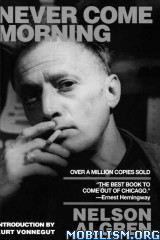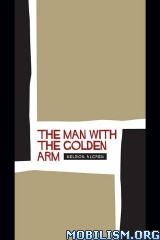Two Books by Nelson Algren
Requirements: ePub Reader, 1.1MBB
Overview: Born of Swedish-immigrant parents, Nelson Ahlgren Abraham moved at an early age from Detroit to Chicago. At Illinois University he studied journalism. His experiences as a migrant worker during the Depression provided the material for his first novel Somebody in Boots (1935). Throughout his life Algren identified with the American underdog. From 1936 to 1940 (the highpoint of left-wing ideas on the US literary scene) he was editor of the Illinois Writers’ Project. In 1942, after putting the finishing touches to his second novel, he joined the war as an enlisted man. Never Come Morning received universal acclaim, and eventually sold over a million copies.
Genre: Classics
Never Come Morning: Never Come Morning is unique among the novels of Algren. The author’s only romance, the novel concerns Brun Bicek, a would-be pub from Chicago’s Northwest side, and Steffi, the woman who shares his dream while living his nightmare. "It is an unusual and brilliant book," said The New York Times. "A bold scribbling upon the wall for comfortable Americans to ponder and digest." This new edition features an introduction by Kurt Vonnegut, Jr. and an interview with Nelson Algren by H.E.F. Donohue.
The Man with the Golden Arm:
The Man with the Golden Arm is Nelson Algren’s most powerful and enduring work. On the 50th anniversary of its publication in November 1949, for which Algren was honored with the first National Book Award (which he received from none other than Eleanor Roosevelt at a ceremony in March 1950), Seven Stories is proud to release the first critical edition of an Algren work.
A novel of rare genius, The Man with the Golden Arm describes the dissolution of a card-dealing WWII veteran named Frankie Machine, caught in the act of slowly cutting his own heart into wafer-thin slices. For Frankie, a murder committed may be the least of his problems.
The literary critic Malcolm Cowley called The Man with the Golden Arm "Algren’s defense of the individual," while Carl Sandburg wrote of its "strange midnight dignity." A literary tour de force, here is a novel unlike any other, one in which drug addiction, poverty, and human failure somehow suggest a defense of human dignity and a reason for hope.
Special contributions by Russell Banks, Bettina Drew, James R. Giles, Carlo Rotella, William Savage, Lee Stringer, Studs Terkel, Kurt Vonnegut, and others.
Download Instructions:
http://festyy.com/wLbZx7


